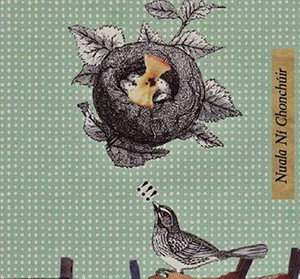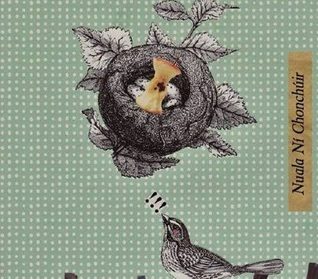Nuala Ni Chonchuir completely annihilates John Lavin’s prejudices towards flash fiction with her collection Of Dublin and other fictions.
I’ve not always been a fan of flash fiction, finding that it can too often err on the side of the one-dimensional. Very frequently, indeed, authors seem to view it as a space for linguistic showboating, or worse still, homespun philosophy. While Hemingway’s ‘For Sale: baby shoes, never worn’ is a work of minimalistic genius, it has also been quoted and used as a catalyst for creative writing exercises so often that it has become the progenitor of a hundred thousand surface-deep meditations on the human condition. Indeed, for me, I have never been able to fully lose the impression that flash fiction is simply a creative writing workshop exercise dressed up as something more.

Until now that is, because Nuala Ni Chonchuir’s flash fiction collection, Of Dublin and other fictions, makes a complete nonsense of everything I have just said. Of course it does, because, asides from anything else, it is written by Nuala Ni Chonchuir. In the same way that Hemingway can deliver six words with more impact and punch than most people can manage in a whole novel, Ni Chonchuir, in one exquisitely crafted, brevity-rich volume, doesn’t so much redeem the genre as make it frankly transcend the sum of its parts.
Because, make no mistake about it, Of Dublin and other fictions often contains work of the same poetical complexity and reach as the very best of her longer short fiction. Indeed what is so extremely impressive about Nuala Ní Chonchúir’s use of the flash fiction form is that, time and time again, she uses it to deliver the same epiphanic punch that can be found in the best of her short stories and poems. Indeed, just as her poetry often seems to have a short story-like quality to it, and her short stories a poetic quality, so too, do her short short stories contain both a poetic power and a ‘total exclusion of meaninglessness’ (William Trevor’s phrase relating to the necessary ruthlessness required to write a short story). It is really as though the form in which Nuala Ní Chonchúir writes is irrelevant to what she writes. You feel, indeed, that if she were a musician or a painter she would still be able to convey her artistic vision with the same degree of success.
Let us take ‘From Ugly to Alice’ as an example. A story which despite being maybe two hundred words long, somehow manages to contain all of the complexity of an empowering, life-saving romance between Alice and the narrator. The narrator is someone who has always been made to feel physically ugly and who feels that her:
pretty friends say they love to go to the pub with me because I am no competition. …Men treat me as a buddy, a pal, a mate. I am one of the lads. It would be some sort of joke if I aroused my buddies, my pals, my mates.
But Alice ‘divines beauty everywhere’ and everything is altered for the narrator:
Alice rubs her eyes over my bulbous head and my flat nose. She thumbs my skewed eyes closed. She rubs her milk-soft skin across the down on my cheeks. She takes my hand in hers.
‘The beautiful are not made,’ Alice says. ‘They just are.’
In its comprehensive understanding of human interactions, both the cruel and loving, sensual kind, it somewhat recalls the snaking, sinuous prose of Ali Smith, whilst always remaining essentially Nuala Ní Chonchúir-esque.That it does so in around two hundred words is nothing short of remarkable.
Another exceptional story in the collection, ‘Room 213’, describes the ambiguous relationship between a Ukrainian hotel cleaner working in Dublin and one of the hotels wealthy clients. It is a piece that is languid with dark, suggestive overtones. A piece that, once again, in a shockingly short space of time, manages to convey a great deal about each woman, while also raising questions of power and servitude, questions of ownership and sexual desire.
Another fine short short story is ‘Fish’, which involves a middle-aged woman accidentally seeing her next door neighbor, Nicholas, outside in his garden, ‘standing on his puddled clothes, all chest-fuzz and stomach and genitals.’ He is a fisherman of some description and earlier she has seen his
lorry, on its side, spilling a sea of fish onto the tarmac…. Nicholas, stood there among them, like a man from the bible, with his hands outstretched.
Nicholas sees her staring at his naked form and is clearly embarrassed. In a moment of mad solidarity, the woman herself strips, so that they are both standing staring at each other. Naked and smiling. Like some kind of Joycean Adam and Eve.
The collection, as a whole, is peppered with this kind of wit and insight, as well, of course, as the frequently breathtaking poetical prose that has become this writer’s trademark. Indeed, like all of Nuala Ní Chonchúir’s recent work, Of Dublin and other fictions is essential reading.
Recommended for you:
In 2015 Wales Arts Review spent the run up to National Flash Fiction Day celebrating the shorter form by publishing a week-long series of stories specially commissioned from some of Wales’ most exciting voices. We enjoyed it so much that in 2016 we extended this to a Flash Fiction Month with even more of Wales’ best literary talents. With stories by Cynan Jones, Nigel Jarrett, Jane Roberts, and so many more, we’ve compiled a wide collection of stories, each with their own unique twists.











